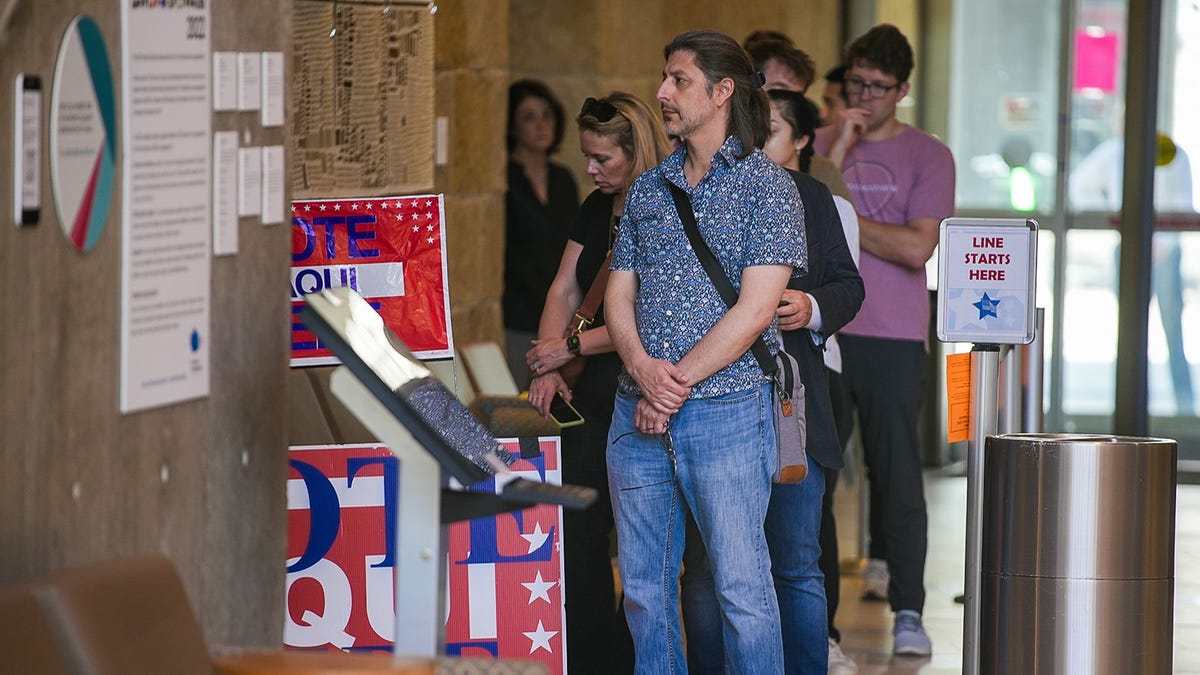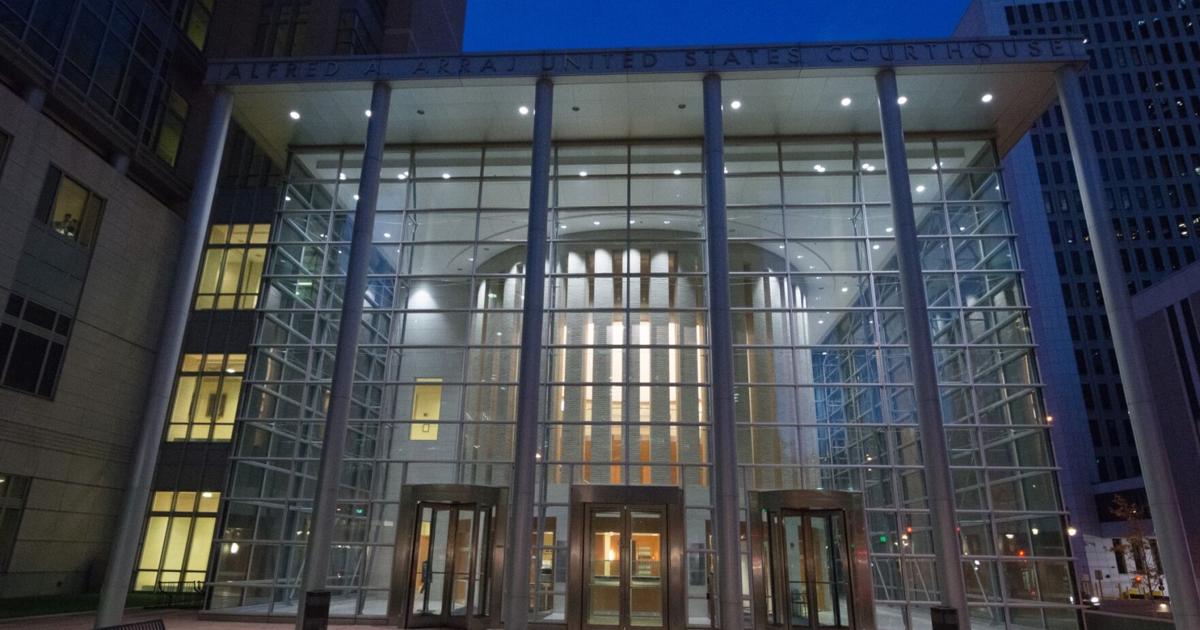One month before President-elect Joe Biden’s inauguration, Dana Remus, the incoming White House counsel, sent a letter to senators outlining the new administration’s philosophy for filling certain presidentially appointed roles, including federal trial judgeships.
“With respect to U.S. District Court positions,” she wrote, “we are particularly focused on nominating individuals whose legal experiences have been historically underrepresented on the federal bench, including those who are public defenders, civil rights and legal aid attorneys, and those who represent Americans in every walk of life.”
Colorado’s two Democratic U.S. senators, who, like their colleagues, play an outsize role in judicial nominations from their home state, said the Remus letter struck a chord.
“I was very sympathetic to the memo in that I do think, historically, there has been a tendency to appoint lawyers that have served in large firms to federal judgeships,” recalled Sen. Michael Bennet. “But it’s not the only experience that’s valuable. I think that the Remus memo and the Biden administration’s approach gave all of us the chance to reconsider the scope of what an applicant pool would look like.”
“Anytime the White House tells me something, I take it seriously,” added Sen. John Hickenlooper. “So, I assumed it was very serious.”

In this file photo, U.S. Sens. Michael Bennet, left, and John Hickenlooper, both Colorado Democrats, speak at an event on June 18, 2021, in Aurora.
The last three years have been transformative for Colorado’s federal district court, with Biden appointing five members to the seven-judge bench. In line with the Remus letter, many of the appointees touted underrepresented backgrounds: a workers’ rights attorney, a resident of the Western Slope and the first magistrate judge to be elevated to a district judgeship.
In interviews with Colorado Politics, Bennet and Hickenlooper spoke about their role in filling vacancies after multiple Barack Obama and George W. Bush appointees, in rapid succession, announced they would take a form of retirement known as “senior status,” opening up seats for new judges.
With no current or pending district judge vacancies for the first time in several years, Colorado is no longer a “judicial emergency” state with an exceedingly high ratio of cases to judges.
“Sens. Bennet and Hickenlooper continue to engage thoroughly and meaningfully with the White House and our committee to identify and support nominees to federal judgeships in Colorado,” said Senate Judiciary Committee Chair Dick Durbin, D-Ill. “Their work is paying off for Coloradans with five highly qualified, diverse judges confirmed to the District of Colorado under President Biden. I thank them for their partnership to help fill these vacancies.”

U.S. Sens. Michael Bennet and John Hickenlooper pose with U.S. District Court Judge Charlotte N. Sweeney at her ceremonial swearing-in in October 2022. Photo courtesy of Hickenlooper’s office.
Getting down to work
As of mid-April, the Biden administration has won confirmation for more than 190 judges. Progressives, however, have raised concerns about a lopsided aspect of the appointments. While states with two Democratic senators have generally made quick work of addressing vacancies — including filling seven out of seven seats on the Seattle-based trial court with Biden appointees — the majority of outstanding vacancies are from states with at least one GOP senator.
District court vacancies still require senators to return “blue slips,” which effectively give them individual veto power over nominees from their home states. Bennet agreed in principle with the idea that senators, “in a functional system,” should have substantial input on judicial nominees. He called the Remus letter a “delicate dance” between the executive and legislative branches of government.
“I don’t think they felt like they were gonna overrule the prerogatives of the senators and the senators weren’t gonna overrule the prerogatives of the Biden administration,” he said. “I wouldn’t say they were insistent on enforcing the message of the letter. I think they were clear that that was the priority.”

In this file photo, U.S. Sen. Michael Bennet, D-Colo., arrives for the vote to confirm former Los Angeles Mayor Eric Garcetti as the next ambassador to India at the Capitol in Washington on March 15, 2023.
Hickenlooper, who defeated Republican Sen. Cory Gardner in 2020 and joined the Senate at the outset of the Biden administration, had been involved in judicial selection for almost two decades. As Denver’s mayor, he had the responsibility of selecting Denver County Court judges and then appointed scores of trial and appellate judges during his eight years as Colorado’s governor.
“It’s funny. So, my first appointment was a county judge as mayor of Denver,” he said. “At that time, my chief of staff was Michael Bennet.”
Hickenlooper said his goal has been to appoint the best possible candidates, while also taking time to ensure diversity in the candidate pool. Upon joining Bennet in the Senate, Hickenlooper suggested refreshing the membership of an advisory committee Bennet had used to screen judicial candidates previously.
“I wanted to have a couple people there that I knew well and trusted their opinions within my sense of priorities,” he said.
The committee, whose members had varying degrees of experience with the district court, worked to screen applicants and forward candidates to the senators. Although the first appointee, Regina M. Rodriguez, did not go through the regular committee process, the members engaged with the next four vacancies that arose over the course of two years. In doing so, the committee discussed the Remus letter.
“The directive was to look for candidates who met the directives from the White House. That was important and that was a factor when we were looking at candidates, that we honored that,” said April Jones, the committee’s co-chair. “Not followed it, but it was in our minds.”
Although some Democrats viewed Biden’s presidency as an opportunity to “rebalance” the federal judiciary after the Trump administration’s installment of 234 judges in just four years, Colorado’s senators and the leaders of their advisory committee distanced themselves from the idea that putting progressives on the bench locally was a priority.
“I was motivated to fill the vacancies that occurred because justice delayed is justice denied and I really believe that,” Bennet said.
“I think we were in some way balancing the court just because in a lot of our appointments, there weren’t people with similar backgrounds on the bench,” said Hickenlooper. “But there was never politics. Again, we didn’t ask about how you stand on a woman’s right to choose or how do you stand on issues around how to deal with protesters.”

U.S. Sen. John Hickenlooper says he’s been surprised how work in the Senate has aligned with his strengths.
‘The door is now open’: Charlotte Sweeney officially sworn in to history-making judgeship
Diversity in mind
Bennet, a former editor-in-chief of the Yale Law Journal who joined the Senate in 2009, helped confirm four judges to Colorado’s district court under the Obama and Trump administrations. All were men. In contrast, the first three appointments under Biden were all women.
“We were being intentional about getting women on the court,” he said. “And we were intentional about trying to diversify the court, both in terms of experience and in terms of perspective.”
Bennet added the senators were similarly intentional about recommending magistrate judges, who are hired by the district court to assist with the workload and handle many of the same tasks as their presidentially appointed counterparts. Until the Biden administration, no magistrate judge in Colorado had ever been confirmed to a district judgeship.
“The magistrates were applying regularly to become district court judges and they were getting shut out. And the people in the bar, both inside the court and outside the court, said to me, ‘Look, that’s valuable experience these guys have and you’re losing it by not having magistrate judges,’” Bennet said. “Now, we have three.”
One of the magistrate judges confirmed last year, Gordon P. Gallagher, worked out of Grand Junction. During Gallagher’s Senate confirmation hearing, Bennet touted the geographic diversity Gallagher would bring to the trial court, whose district judges were all stationed in Denver. Shortly after Gallagher’s confirmation, the court announced Gallagher would remain on the Western Slope as the first district judge to ever sit outside of Denver.
Asked whether he recommended Gallagher for a judgeship with the hope Gallagher would remain in Grand Junction, Bennet said yes.

U.S. Magistrate Judge Gordon P. Gallagher appears before the U.S. Senate Committee on the Judiciary on Dec. 13, 2022 for his confirmation hearing.
Colorado Politics file
‘More than a symbol’: Western Slope’s Gordon Gallagher ceremonially sworn in to federal judgeship
Hickenlooper maintained the objective in the selection process was to recommend “the best person.” At the same time, he acknowledged the demographic needs of the court were evident.
“We were certainly aware there had been a significant lapse since a woman had been appointed from Colorado. But that didn’t mean we were gonna compromise our standards,” he said.
Hickenlooper said he and Bennet shared the job of getting support in the Senate for Colorado’s judicial nominees and determining what features of a candidate’s background might cause concern with which senators. As a first-term senator, though, Hickenlooper said he sometimes used judicial nominations as an inroad to forming relationships to advance other policy issues.
“By starting and doing judicial appointments right off the bat, it helps us break the ice with not just Democrats, but Republicans, as well, and helps us on things like making sure that we had bipartisan support to keep Space Command in Colorado,” he said. “Space Command doesn’t have anything to do with judicial appointments, but building relationships with other senators is relative to everything that’s important.”
The familiar face
Although the majority of the nominees kept relatively low profiles, two candidates attracted scrutiny from opposite ends of the political spectrum.
During Obama’s last year in office, then-Senate Majority Leader Mitch McConnell, R-Ky., famously blocked the president from filling a Supreme Court vacancy and shifting the court leftward. But the Senate also declined to act on other nominations — including Rodriguez, who had the backing of Bennet and Gardner to become a trial judge.
At the outset of the Biden administration five years later, the president faced an immediate vacancy on Colorado’s district court.
“I was very familiar with the way Gina Rodriguez was left high and dry in the process that we had gone through,” Bennet said. He and Hickenlooper turned to their advisory committee to ask what members thought about renaming Rodriguez as the sole candidate for the seat — despite the Remus letter’s request that senators provide at least three finalists to the White House.

In this file photo, Regina M. Rodriguez, nominee to be U.S. District Judge for the District of Colorado, testifies during her Senate Judiciary Committee confirmation hearing in Dirksen Senate Office Building in Washington, D.C., on Wednesday, April 28, 2021. Rodriguez was confirmed to the bench by the full Senate on Tuesday, June 8, 2021.
“We didn’t feel the need to redo the process, given how robust it was sending her name up before,” recalled Michelle Lucero, co-chair of the committee. “And it was fairly close in time. … The nice thing about her is that she had bipartisan support from, at that time, Sen. Gardner within the state. So, we felt pretty comfortable.”
Rodriguez’s nomination generated complaints from progressives who noted Rodriguez, as a corporate attorney, did not fit the Remus letter’s request for judges from underrepresented backgrounds.
“Why Is Michael Bennet Defying Joe Biden’s Call for Non-Corporate Judges?” asked an article in The American Prospect.
Still, notwithstanding their knowledge of the Remus letter, the committee gave the senators a thumbs-up on Rodriguez.
“Not only did they think she would be an excellent judge, but I think they thought she had taken a real beating in the process before,” said Bennet. “Maybe I shouldn’t say ‘real beating.’ She had taken a long time in the process. And they thought it was appropriate that she’d go first.”
Biden included Rodriguez in his first batch of judicial nominations and she wound up being confirmed by the largest margin of any Biden appointee in Colorado: 72-28.
‘Judge Gina’ dons robes in ceremony featuring family, judges, senators
The gaffe
Biden’s most recent appointee, S. Kato Crews, was confirmed in January by a narrow 51-48 vote. Crews had been a magistrate judge for five years and, like other nominees, came with a roster of home state endorsements, including from Justice Monica M. Márquez of the Colorado Supreme Court.
But at Crews’ confirmation hearing in March 2023, he flubbed a question from Sen. John Kennedy, R-La. about Brady v. Maryland, the U.S. Supreme Court case requiring prosecutors to disclose certain evidence favorable to defendants.
“Do you know what a Brady motion is?” Kennedy asked. Crews, in the moment, did not immediately recall.
Lawyers who practice in Colorado’s federal courts were largely unbothered by the memory lapse. But Crews generated social media criticism and McConnell, speaking on the Senate floor, pointed to him as a nominee “not on track to get bipartisan support.”
“I had conversations with Republican colleagues,” said Bennet about Crews’ nomination. “It’s not surprising to me that that could be a difficult moment, and I thought Judge Crews’ entire record needed to be considered here.”
“With Judge Crews,” added Hickenlooper, “because he misunderstood the question around the Brady motion, that was very easy for me to talk about with other senators because I didn’t know exactly what the Brady motion was.”
As a non-attorney — and someone with his own history of making eyebrow-raising comments publicly — Hickenlooper said he was able to make the case to colleagues that Crews’ flub was understandable.
“Pretty much everyone agreed: That sounds like a misunderstanding that certainly shouldn’t be something that in any way would disqualify him from being appointed,” Hickenlooper said. “You know, those are the type of conversations by which you change people’s opinions.”
The Senate confirmed Crews 11 months after his nomination, the longest gap of any Biden appointee in Colorado. Two Republicans voted in favor. Asked whether they had any serious concerns Crews would need to withdraw his nomination, Bennet and Hickenlooper immediately responded: No.

U.S. Magistrate Judge S. Kato Crews testifies at his confirmation hearing to be a district court judge on March 22, 2023.
Into the lull
Colorado’s district court bench is likely stable for the foreseeable future. The only member eligible to take senior status, George W. Bush appointee Philip A. Brimmer, has two years left in his term as chief judge. Bennet said he usually receives a heads-up from judges who have decided to step down, but Brimmer has not indicated he will do so.
‘An American success story’: Nina Wang formally sworn in as history-making federal judge
The gap between vacancies also gives an opportunity for legal groups in Colorado to think about their engagement with the process of nominating federal judges. Although bar associations are routinely involved with appointments of state judges, they had to adjust to Bennet and Hickenlooper’s system.
“Because federal judicial vacancies are so rare, APABA’s judicial nominations committee does not have a defined process for weighing in as we do for state judicial vacancies,” said Christine Lyman and Kevin Chen, co-chairs of the judicial nominations committee for the Asian Pacific American Bar Association of Colorado. They added that their association sent endorsement letters to the senators’ advisory committee and the White House on behalf of certain candidates, and also wrote a letter of support for Crews to the Senate Judiciary Committee at his request.
Amber R. Gonzales, president of the Colorado Hispanic Bar Association, added that the group endorsed multiple candidates and was disappointed the judicial nominees did not include more Latino lawyers. However, Gonzales said, the bar association would continue to build a more robust pipeline to the bench and “regrow a lot of those (political) connections, especially outside of just the core legal community.”
Apart from the public and private advocacy on behalf of Colorado’s judicial nominees, Hickenlooper disclosed another factor that, in his view, made the process unfold smoothly.
“What also helps Colorado is the fact that Michael Bennet is recognized as a consummate, someone who really understands the law at a deep level,” Hickenlooper said. “So, when he and I are both going out there to make sure we get enough votes to confirm any of these appointments, my voice carries a little more authority because he’s my senior senator.”





























